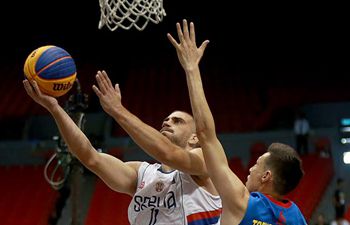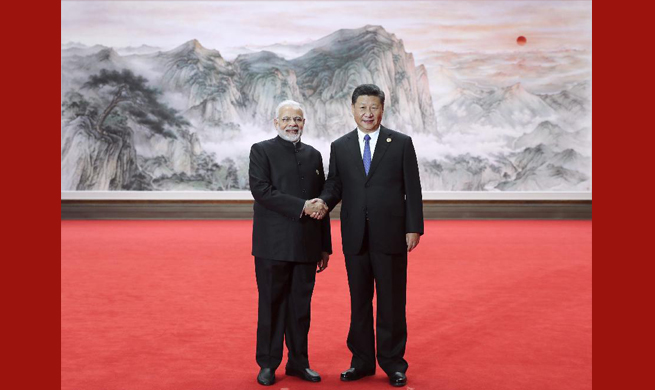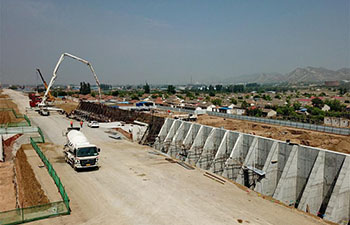By Sportswriter Yao Youming
BEIJING, June 12 (Xinhua) -- The Video Assistant Referee (VAR) system will be used for the first time at the 2018 FIFA World Cup in Russia to help minimize refereeing mistakes.
But the question is: can VAR help eliminate mistakes or will the system create new controversies? There is a hope that VAR can help referees with contentious decisions and help avoid a repeat of some of the biggest refereeing errors that have formed part of the rich tapestry of World Cup history.
One classic World Cup moment might even have been overturned if VAR was in play. In the 1986 World Cup quarterfinal, Argentina's Diego Maradona knocked the ball into the back of England's net using his fist. When asked about the incident, Maradona famously replied that the goal was scored "a little with the head of Maradona and a little with the hand of God."
If the referee Ali Bin Nasser had VAR's help, the Argentinian captain may have been shown a yellow, and his goal could have been disallowed. "The chances of making a correct decision without a video assistant are about 93 percent. They are at 99 percent with the video assistants," FIFA president Gianni Infantino said.
To promote the system, football's governing body has launched workshops to help World Cup referees prepare for using VAR in Russia. However, the effectiveness of the system may still largely depend on the men with the whistles.
According to FIFA, the video referee should only intervene in cases of obvious mistakes by the referees on decisions regarding goals, offsides, dismissals or mistaken identity when it comes to the players that will be punished.
During a match only the chief referee has the final say over whether VAR should be used or not. As a result whether or not the referee chooses to use the technology is likely to be a new controversy at the tournament. It's not just the World Cup referees who should be prepared for the changes. It would be better for the players if those who score stay calm and not celebrate their goals too quickly, because they might have to wait for a VAR decision. Another worry is that referees might become too dependent on the VAR system.
The Chinese Super League started to use VAR in the 2018 season. When Guizhou Hengfeng played against Hebei China Fortune in the second round, three goals out of five were sent to the VAR. Chinese media criticized the referee's reliance on technology, speculating that it might lead to some referees losing confidence in their own judgement.
They argued that using VAR too often might interrupt the normal pace of the games and spoil the professional competence of the referees.
It takes time for people to adapt to innovation, and only when humans and machines work together can they get the most out of the new tool. It's widely hoped that this summer the VAR can avoid controversy as many as possible.

















